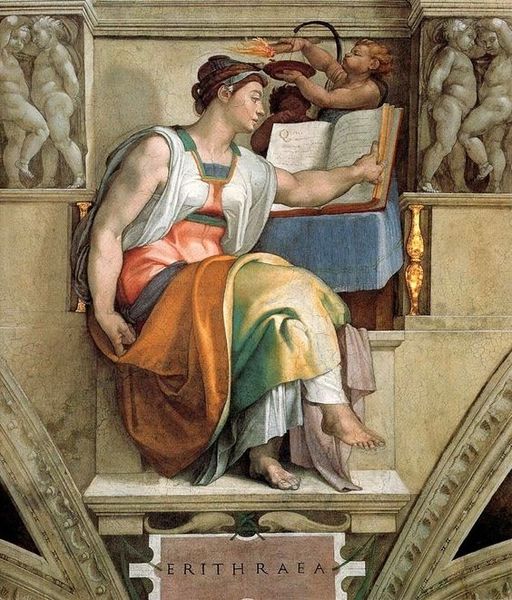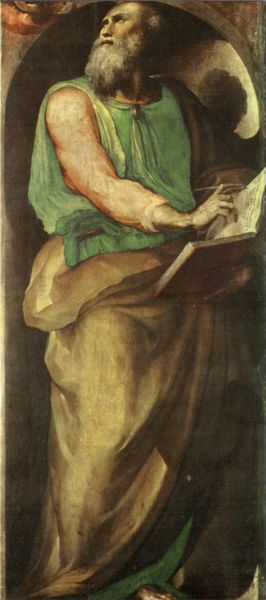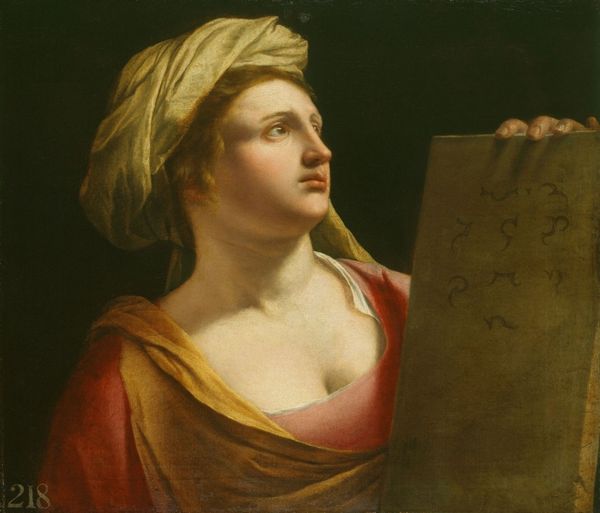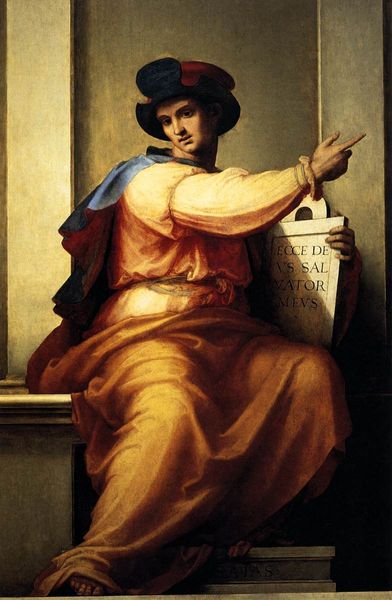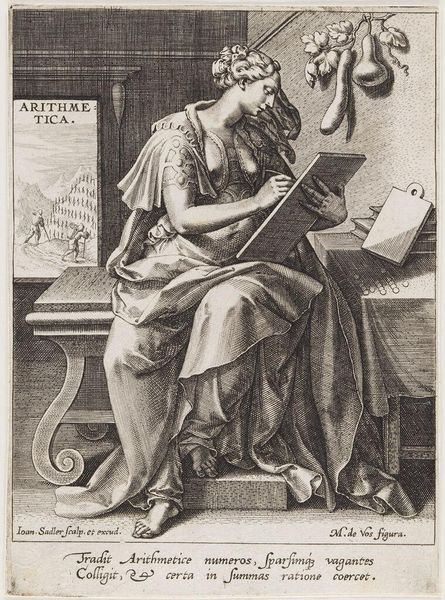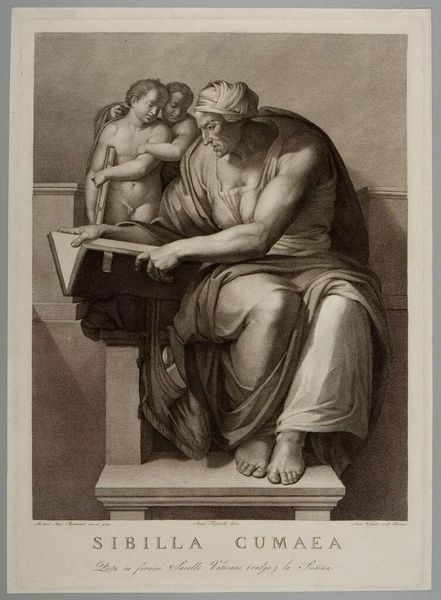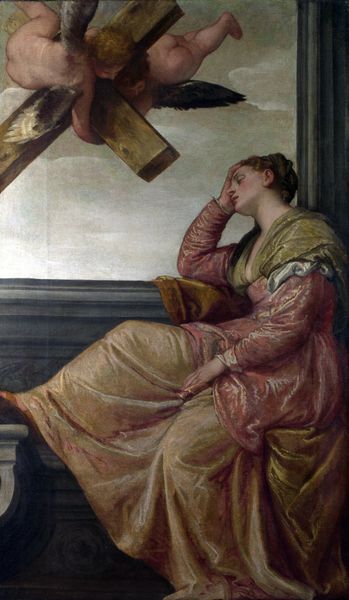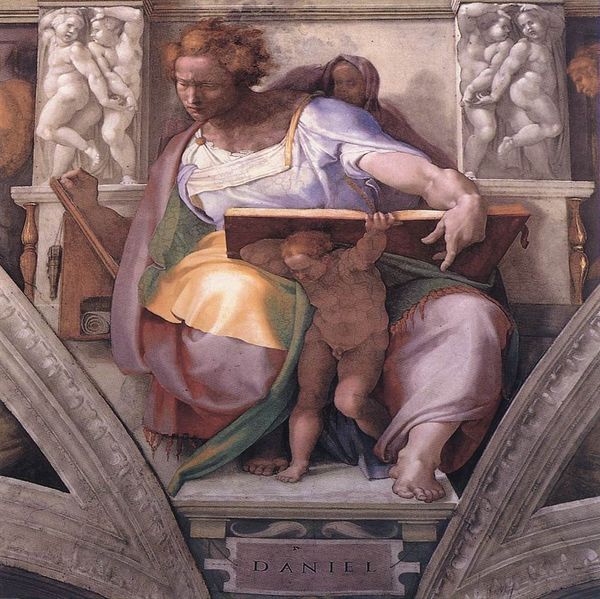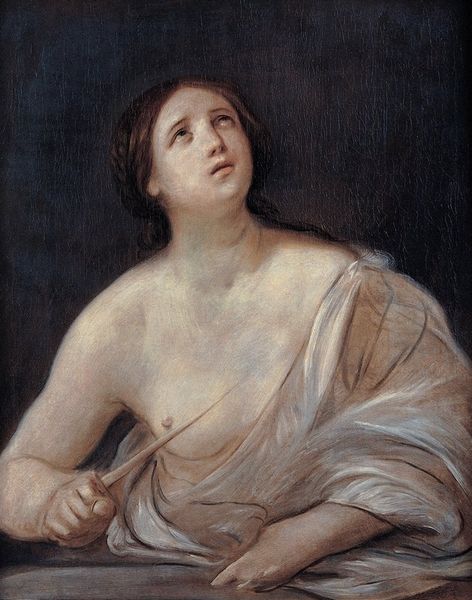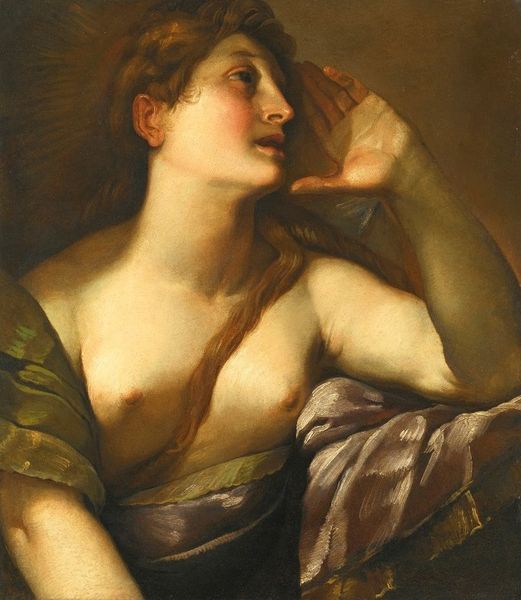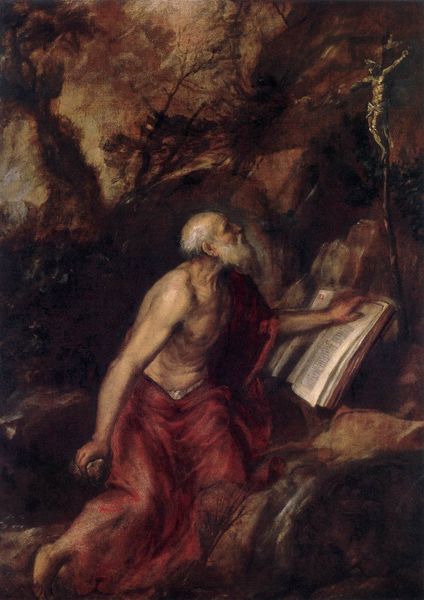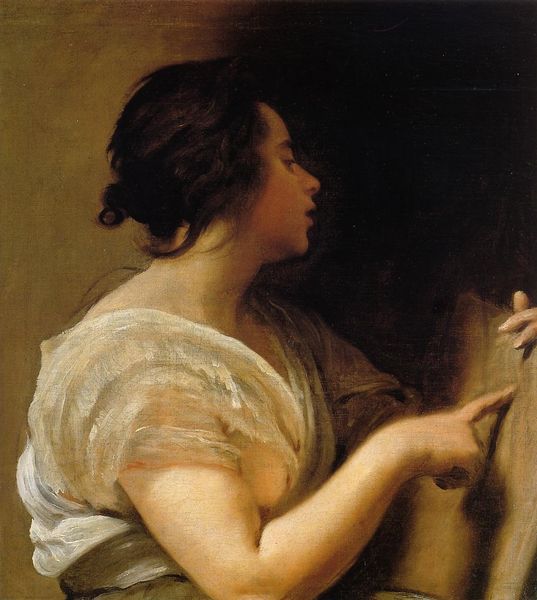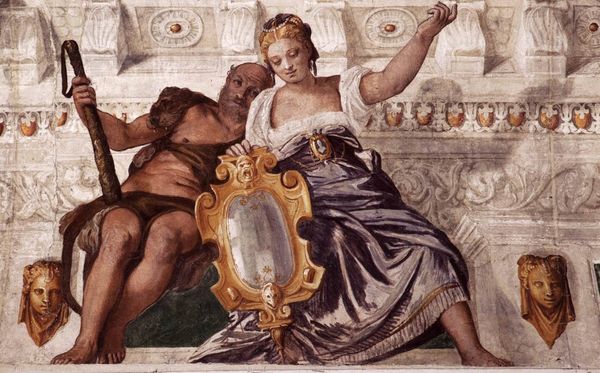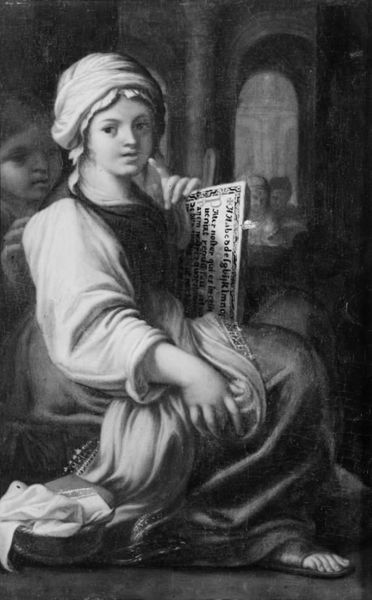
oil-paint
#
portrait
#
allegory
#
oil-paint
#
oil painting
#
portrait head and shoulder
#
mythology
#
history-painting
Copyright: Public Domain: Artvee
Curator: What strikes me immediately about this painting is the air of foreboding. It’s somber, almost heavy, despite the classical allusions. Editor: I agree, there’s definitely a dramatic weight to it. This oil painting by Hans Canon is called “Sibylle.” She’s this figure drawn from Greek and Roman mythology—a prophetess who could see the future. What do you think the artist wants to say with this portrayal? Curator: I think it's Canon’s way of engaging with history, perhaps? The texture he achieves with oil paint is so sensual, yet the inscription is so bleak: "Futura mortalibus occulti." The future is hidden from mortals. Editor: Exactly! That tension is palpable. Consider the period—probably late 19th century—a time of rapid change and, for some, deep uncertainty. By presenting Sibylle with this proclamation, he invites us to ponder not just what the future holds, but also who controls access to that knowledge. Curator: And consider her gaze – directed, thoughtful… yet distant. Is she really seeing something, or merely performing the role of seer? There’s something almost theatrical in her presentation. The folds of her clothes, the way the light hits her face... Editor: That “theatricality,” as you put it, speaks to the power dynamics at play. Sibyls were often portrayed as figures of immense influence, capable of advising rulers and shaping destinies. But were they truly empowered, or simply mouthpieces for other interests? I mean, even the choice to portray her with such pale skin makes me wonder about issues of race and representation. Curator: That makes me question everything… If we step back and strip away her role, does anything linger beyond the canvas? Does this future matter? I suspect Canon intentionally left it open-ended… he wants us to ponder these questions. Editor: It’s a somber commentary about the limitations of human knowledge and power. I think that whether she truly possessed divine insight or was merely a pawn of others, Canon encourages us to question where knowledge truly lies. Curator: A sobering reminder. Canon gives us the wisdom to seek that power… in our own mortal reflections, of course. Editor: Yes, he leaves us wrestling with those secrets even today.
Comments
No comments
Be the first to comment and join the conversation on the ultimate creative platform.
